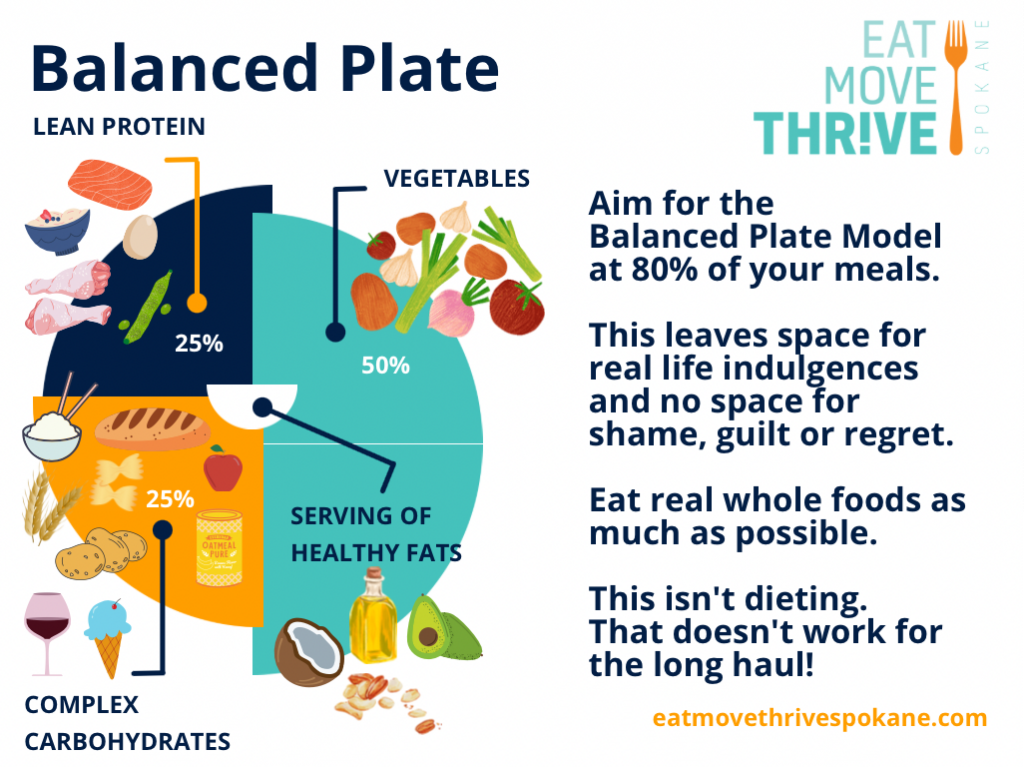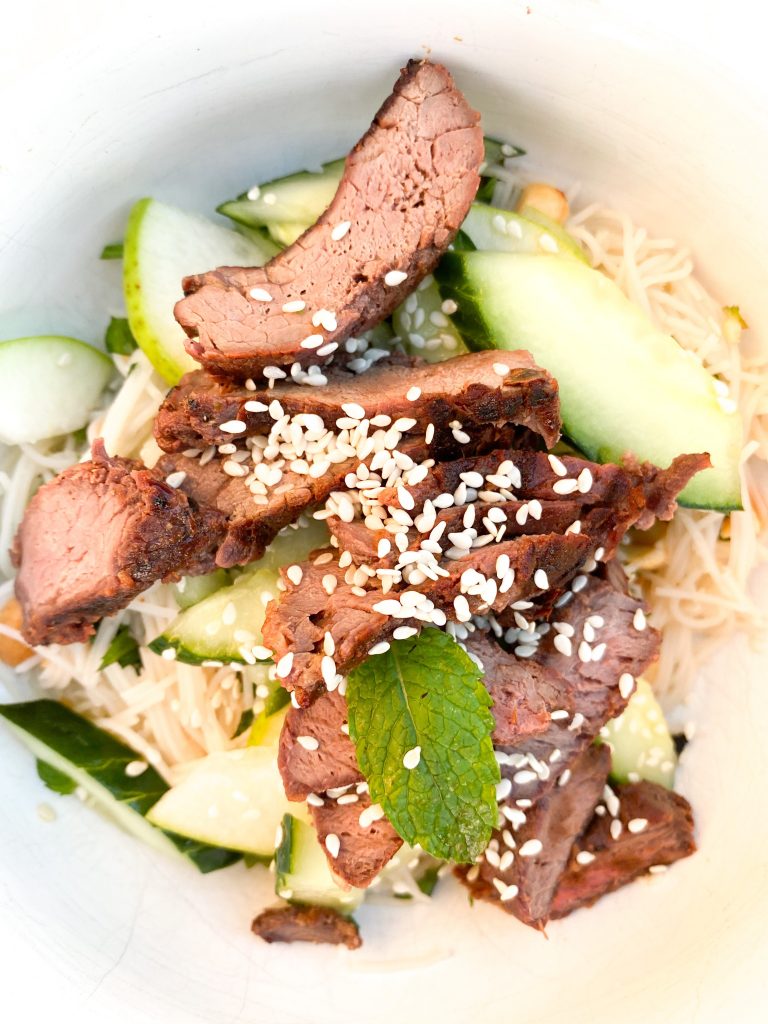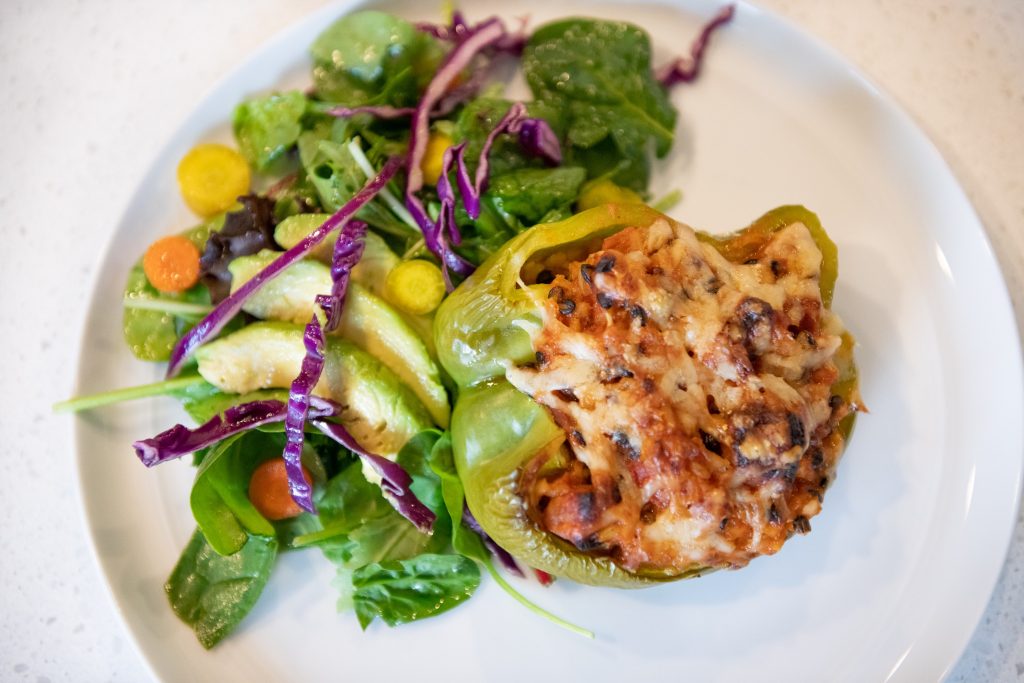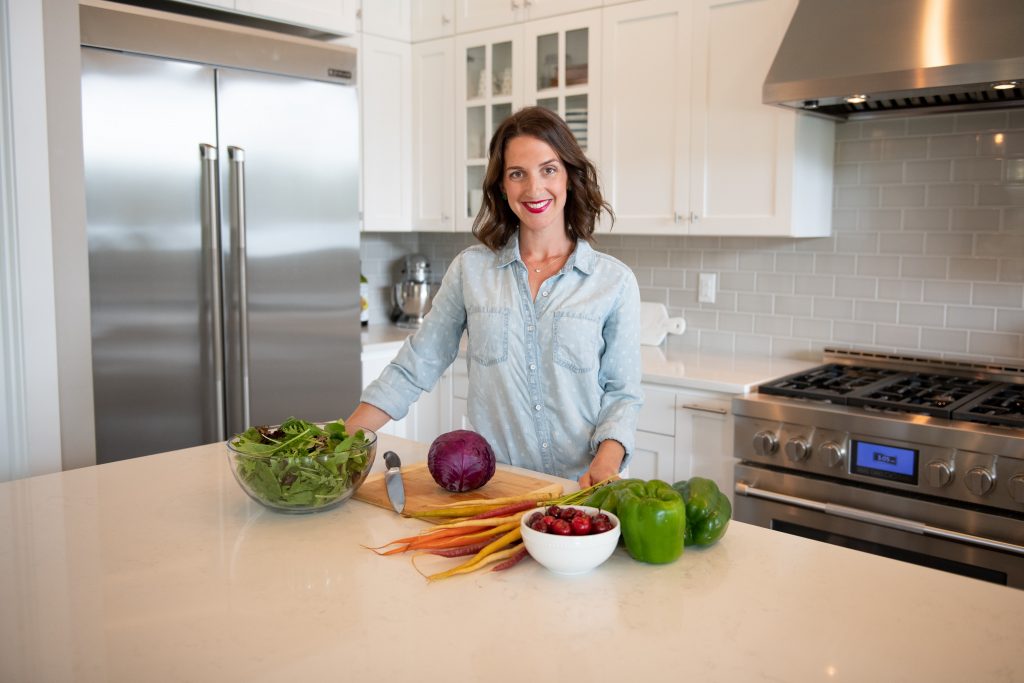Ditch the Diets and Eat This Way (forever).
Eat Move Thrive
By Monika Jacobson, Registered Dietitian Nutritionist
My approach to weight loss has evolved over my twelve-year-plus career as a Registered Dietitian Nutritionist. After attending Washington State University, I rooted down in the Seattle area to counsel clients enrolled in a weight loss program through a luxury health club.
At the time, the program focused on dietary education from Registered Dietitians, emphasizing meal replacements and caloric restriction, paired with personal training sessions and group/individual therapy sessions. Very pretty price tag! Many of these clients had significant weight loss over several months. At the time, I felt comfortable “helping” clients lose weight with meal replacements since we, the dietitians, were educating them on how to eventually eat “normally” forever. However, those who never grasped the concepts of eating whole foods and balanced meals without relying on diet foods struggled to maintain their weight loss.
Most people regained and continued to be on the diet cycle rollercoaster. It’s defeating. And it’s also a bit of a trap.
Throughout the last decade, we have seen countless diets come and go. Many are given a makeover with a dash of pseudoscience and a shiny new name. For example, Keto is essentially the new Atkin’s diet. And guess what? Neither work for most people in the long-term. When you are deprived of cookies and sugar for weeks or months, what happens when you finally eat cookies? You eat all the cookies, right? I do!
So, I am here to simplify healthy eating and help you ditch the dieting nonsense and misinformation. This is how you can eat forever!*
When meals aim to include complex carbohydrates, lean protein and healthy fats, meals will be:
- More filling (higher satiety)
- Supportive of optimal blood sugar level
- Mood balancing (i.e., less “hangry”)
- And much more sustainable in the long term!

The Balanced Plate Model can be a helpful template for planning lunches and dinners especially. When your plate is approximately ½ vegetables, ¼ protein, and ¼ carbs with a serving of healthy unsaturated fats, you will be fuller and more satisfied and less likely to overeat later. It’s not uncommon to under-eat early in the day and then eat anything and everything you can find by 4 or 5 p.m. onward. We’ve all been there!
- Steak with rice noodles & cucumber mint salad (protein=steak, carbs=rice noodles, vegetables/fruits=cucumbers, mint pears, healthy fat= sesame oil, cashews)


- Stuffed bell pepper with brown rice and ground turkey (protein=ground turkey and mozzarella cheese, carbs=brown rice, vegetables=green bell pepper, tomato, onion, healthy fat=avocado oil for cooking)
When my current coaching clients are eating the Balanced Plate model 80 percent of the time, they have room for indulgences. This allows for a sustainable way of eating that isn’t restrictive and allows for flexibility. My clients report vast improvements in their energy levels, mood, and overall health when eating frequent, small meals of balanced whole foods throughout the day. Let me be clear, if I had a magic bullet, I’d give it to you straight. But the real magic is right here in this Balanced Plate model.
*Disclaimer: This is a nutrition suggestion for the general population. Some people will require further personalization by a nutrition or medical professional.
Monika Jacobson
After growing up in the Inland Northwest, Monika Jacobson earned her Bachelor’s degree in Human Nutrition and Dietetics at Washington State University. She moved to the west side and worked as a Registered Dietitian Nutritionist in a myriad of settings–from luxury health clubs, to coaching athletes with sports nutrition, to home health clinical nutrition and various start-ups in Seattle-focused scientific wellness and genetics. After moving to Spokane with her family, she created Eat Move Thrive-Spokane because she wanted to transform people’s lives by teaching them how to make healthy food taste good. At Eat Move Thrive-Spokane, Monika teaches adult and kid cooking classes (online and in-person) and coaches clients one-on-one with their wellness goals centered on nutrition. She discusses how stress, sleep, hormones, and overall mental health affect the decisions we make about food.







